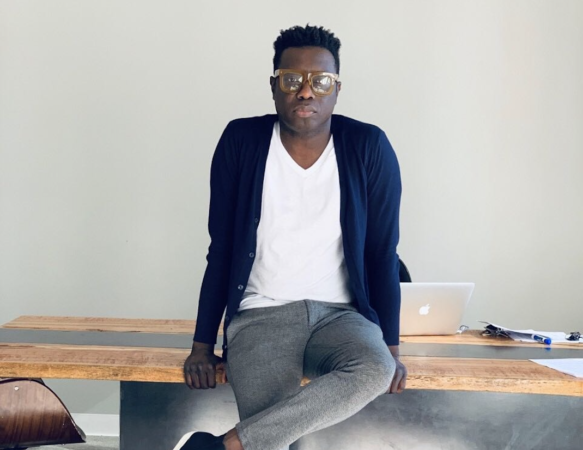For many Black people in the United States, getting access to mental health care is a long, complicated process. From navigating anti-Blackness in the medical industry, to restrictive costs, to trying to find a therapist who shares your identity, there are a lot of potential roadblocks.
According to the Health and Human Services Office of Minority Health, Black people are 20% more likely to experience serious mental health problems than the general population. Knowing that societal factors like racism can impact people’s health, it’s vital for Black people and members of other vulnerable communities to access mental health services.
This is where Ayana therapy comes in— an app developed by founder Eric Coly with the goal of providing marginalized communities with access to online therapy.
Ayana — which means “mirror” in Bengali — matches marginalized communities with licensed therapists based on their unique experiences and identities. By providing people with the ability to utilize online communication, it aims to address some of the barriers (such as lack of transportation or mobility issues) that might prevent people from accessing healthcare.
In addition, Ayana pays special attention to intersectionality. That’s important because people experience all of their identities at once. If you’re Black and a member of the LGBTQ+ community, that can make it increasingly difficult to locate a competent therapist.
Watch the video below to learn a little more!
Coly’s original background is in finance, but he decided to step away after a decade to do a bit of soul cleansing. Originally, he started out by launching a socially responsible fashion line called Le Dessein. Coly’s inspiration to launch AYANA was spurred by his desire to help a friend locate a therapist.
Black women often express their difficulties finding providers who look like them and share base experiences. It was an issue for Coly’s friend, too, who he described as “justifiably emphatic about working with someone that reflected her identity traits and values.”
Diving into market research, Coly found that there was a severe lack of access to mental health services geared towards marginalized communities. But, the more research Coly did, the more his relationship with Ayana transformed.
“A symbiotic relationship also began to take form between myself and Ayana, the more I dove into our research,” Coly shared. “I had been suffering from severe depression for over a decade, depression which slowly found increasing self-healing through this endeavor, forcing in me a need to be publicly transparent about my disorder.”
Designed with users in mind, Ayana is meant to be easy to navigate. All you have to do is log on anonymously, fill out a specially designed intake questionnaire, and then get matched with a licensed therapist through a smart algorithm who you can communicate with via text, voice or video call.
In addition to providing people with access to mental health services, part of Ayana’s mission is to destigmatize mental health. That’s why the app’s website also includes a blog that covers topics like mental health and disability, religion and mental health, and more.
“The use of our blog was strategic in that it helped open the conversations about various aspects of mental health in an educational format, but also gave us the opportunity to further assert Ayana’s values, mission and principles,” Coly said.
Ayana isn’t live yet. A testable product will debut in a month and, after, the team plans on launching nationwide in the fall. But if you’re interested in joining Ayana’s pilot testing program, feel free to reach out!

